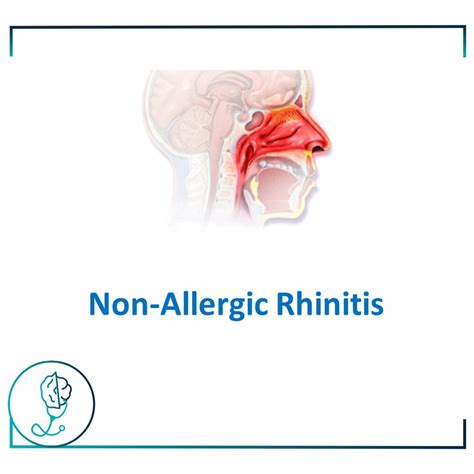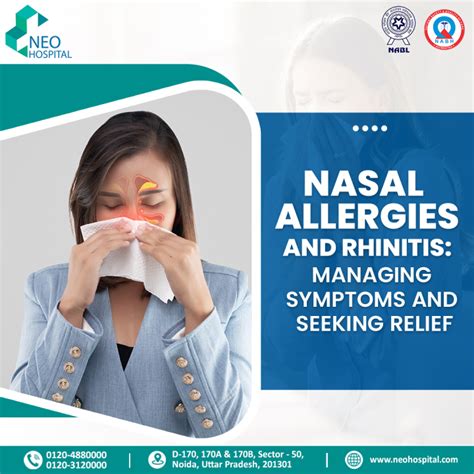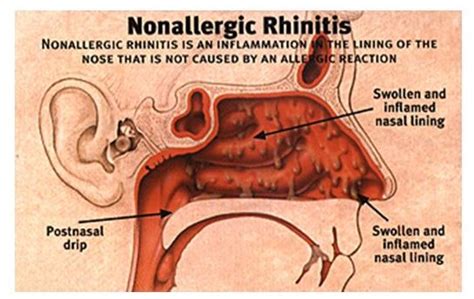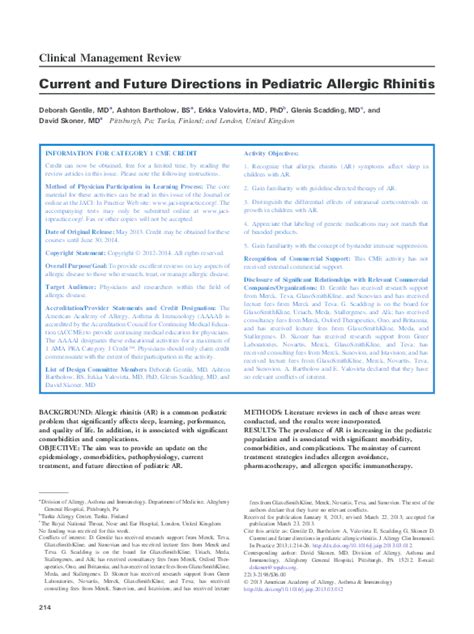Intro
Discover 5 ways to manage Non-Allergic Rhinitis, a chronic condition causing runny nose, congestion, and sinus pressure, through natural remedies, lifestyle changes, and medical treatments, alleviating symptoms and improving quality of life.
Non-allergic rhinitis is a common condition that affects millions of people worldwide, causing symptoms such as congestion, runny nose, and sneezing. Unlike allergic rhinitis, which is triggered by allergens like pollen or dust, non-allergic rhinitis is not caused by an allergic reaction. Instead, it is often triggered by environmental factors, hormonal changes, or other underlying health conditions. In this article, we will explore the importance of understanding non-allergic rhinitis, its symptoms, and treatment options.
Non-allergic rhinitis can significantly impact a person's quality of life, making everyday activities like work, school, or socializing challenging. The condition can also lead to complications like sinus infections, ear infections, or asthma. Furthermore, non-allergic rhinitis can be frustrating to diagnose, as the symptoms are often similar to those of allergic rhinitis. Therefore, it is essential to consult a healthcare professional for an accurate diagnosis and treatment plan.
The prevalence of non-allergic rhinitis is increasing, and researchers are still working to understand the underlying causes of the condition. While there is no cure for non-allergic rhinitis, there are several treatment options available to manage symptoms and improve quality of life. In the following sections, we will delve into the world of non-allergic rhinitis, exploring its symptoms, causes, diagnosis, and treatment options.
Understanding Non-Allergic Rhinitis

Causes of Non-Allergic Rhinitis
Non-allergic rhinitis can be caused by a variety of factors, including environmental triggers, hormonal changes, and underlying health conditions. Some common causes of non-allergic rhinitis include: * Environmental factors like temperature changes, humidity, or exposure to strong odors or chemicals * Hormonal changes during pregnancy, menstruation, or menopause * Underlying health conditions like thyroid disorders, gastroesophageal reflux disease (GERD), or sinus infections * Medications like beta-blockers, aspirin, or certain antidepressants * Anatomical issues like a deviated septum or nasal polypsDiagnosing Non-Allergic Rhinitis

Treatment Options for Non-Allergic Rhinitis
Treatment for non-allergic rhinitis depends on the underlying cause and severity of symptoms. Some common treatment options include: * Medications like nasal decongestants, antihistamines, or corticosteroids to manage symptoms * Lifestyle changes like avoiding environmental triggers, using saline nasal sprays, or practicing good hygiene * Surgery to correct anatomical issues like a deviated septum or nasal polyps * Alternative therapies like acupuncture or herbal supplements to manage symptoms and improve quality of lifeManaging Symptoms of Non-Allergic Rhinitis

Preventing Complications of Non-Allergic Rhinitis
Preventing complications of non-allergic rhinitis requires prompt treatment and management of symptoms. Some common complications of non-allergic rhinitis include: * Sinus infections * Ear infections * Asthma * Sleep disturbances * Decreased quality of lifeLiving with Non-Allergic Rhinitis

Coping with the Emotional Impact of Non-Allergic Rhinitis
Non-allergic rhinitis can have a significant emotional impact, causing feelings of frustration, anxiety, and depression. Some strategies for coping with the emotional impact of non-allergic rhinitis include: * Seeking support from family and friends * Joining a support group to connect with others who have non-allergic rhinitis * Practicing relaxation techniques like meditation or deep breathing exercises * Engaging in activities that bring joy and fulfillmentFuture Directions in Non-Allergic Rhinitis Research

Conclusion and Final Thoughts
Non-allergic rhinitis is a complex condition that requires a comprehensive approach to diagnosis, treatment, and management. By understanding the causes, symptoms, and treatment options for non-allergic rhinitis, individuals can take control of their health and improve their quality of life. We hope that this article has provided valuable insights and information for individuals living with non-allergic rhinitis.What are the symptoms of non-allergic rhinitis?
+The symptoms of non-allergic rhinitis include congestion, runny nose, sneezing, and postnasal drip.
How is non-allergic rhinitis diagnosed?
+Non-allergic rhinitis is diagnosed through a physical examination, medical history, and diagnostic tests like allergy testing, nasal endoscopy, and imaging tests.
What are the treatment options for non-allergic rhinitis?
+Treatment options for non-allergic rhinitis include medications like nasal decongestants, antihistamines, or corticosteroids, lifestyle changes, and alternative therapies like acupuncture or herbal supplements.
Can non-allergic rhinitis be prevented?
+While non-allergic rhinitis cannot be completely prevented, managing symptoms and avoiding environmental triggers can help reduce the frequency and severity of symptoms.
What is the prognosis for non-allergic rhinitis?
+The prognosis for non-allergic rhinitis is generally good, with most individuals experiencing significant improvement in symptoms with treatment and lifestyle changes.
We encourage you to share your experiences and questions about non-allergic rhinitis in the comments section below. If you found this article helpful, please share it with others who may be living with non-allergic rhinitis. Together, we can work to raise awareness and improve understanding of this complex condition.
